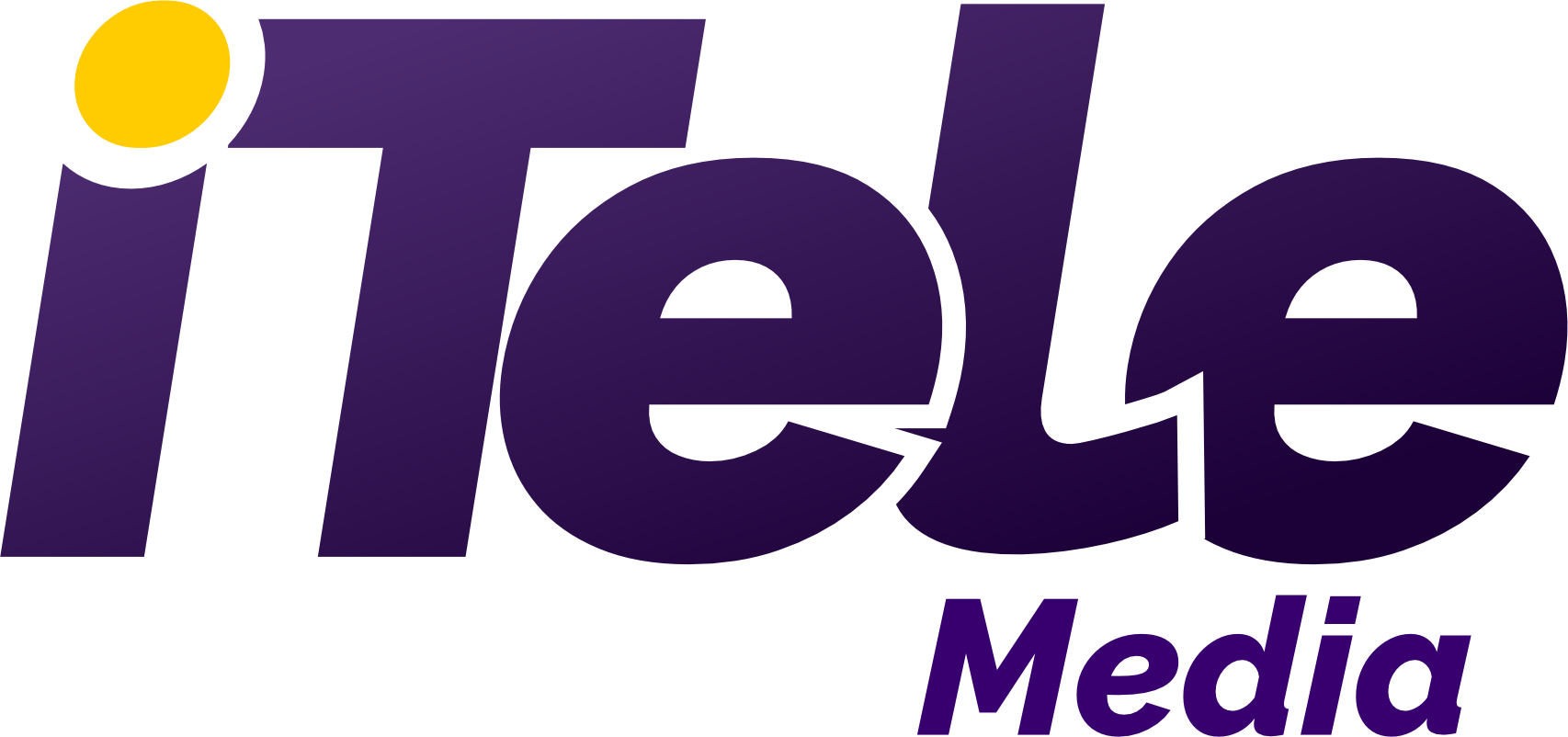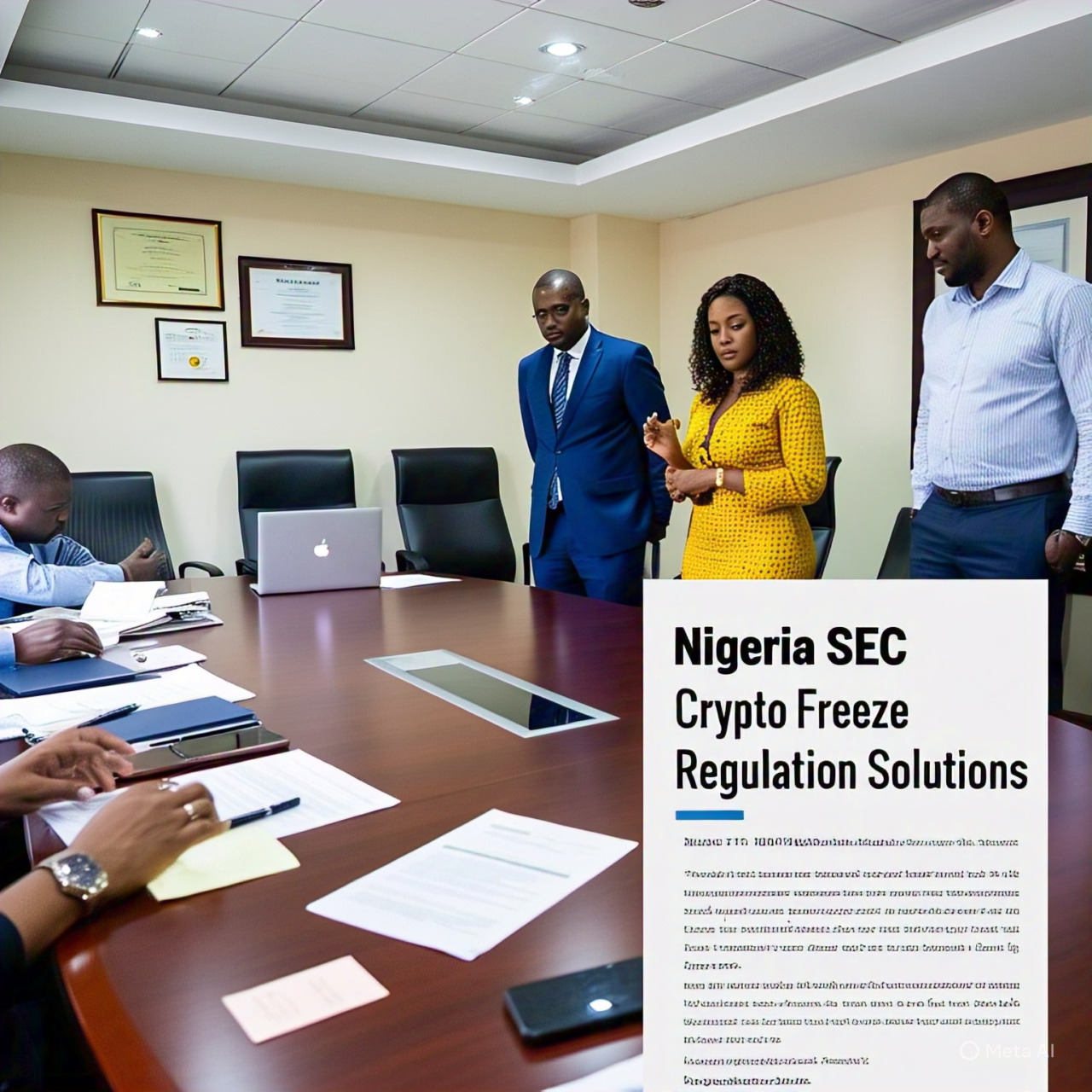INTRODUCTION
Hey there — let’s cut straight to the heart of Nigeria’s crypto drama. Picture this: a bustling ecosystem of blockchain innovators, hungry to redefine finance, suddenly hitting a brick wall. The reason? Nigeria’s SEC has slammed the brakes on licensing crypto startups , leaving founders in limbo and dreams on pause. It’s a clash of ambition and caution, and the stakes couldn’t be higher .
Why the Freeze?
The SEC isn’t being a villain here — they’re scrambling to balance innovation with safety. After greenlighting two exchanges (Busha and Quidax) in 2024, they hit “Level 3 due diligence” — think forensic audits, anti-money laundering checks, and cross-agency coordination with the EFCC and NFIU. Translation: they’re digging deeper than ever to weed out bad actors . But here’s the rub: these agencies work at their own pace, and startups are stuck waiting .
Startups in the Crossfire
Imagine pouring your life savings into a crypto project, only to face ₦2 million ($1,245) fees just to apply for a license. Add mandatory tools like Chainalysis for transaction monitoring, and smaller players are gasping for air. It’s survival of the richest, with giants like Binance exiting and locals like Sytemap clinging to foreign blockchains like Stellar . The message? Innovate, but don’t trip — the SEC’s watching.
T he Bigger Picture
This isn’t just red tape. The investments and Securities Act 2025 just recognized crypto as securities, giving the SEC teeth to regulate. It’s a landmark shift — but timing is everything. While Nigeria ranks second globally in crypto adoption, trust is fragile. Remember the Binance fiasco? Or the CBEX Ponzi scheme that fleeced millions? The SEC’s playing catch-up in a Wild West market .
What’s Next?
Founders are frustrated (“Speed things up!”), regulators are defensive (“We’re building a framework! ”), and investors? They’re eyeing the door. The SEC’s delay could either save Nigeria’s crypto scene or strangle it. One thing’s clear: the world’s watching how Africa’s largest economy navigates this.
The Human Cost: Dreams on Hold a
Let’s talk about the faces behind the freeze. Meet Adaora, a 28-year-old developer in Lagos. She spent two years building a peer-to-peer crypto exchange to help Nigerians bypass predatory forex rates. In June 2024, she paid the SEC’s ₦2 million fee, sold her car to fund compliance tools, and waited. And waited. “My team is down to three people,” she says. “We’re surviving on noodles, but hope? That’s running out.”
Adaora’s not alone. Over 100 startups applied for licenses last year. Many, like hers, are young, idealistic, and now teetering on collapse. “The SEC says ‘due diligence,’ but what’s due for us? asks Tobi, founder of a blockchain remittance startup. “We’re not criminals. We’re trying to solve problems banks ignore.”
Why This Hurts :
- Brain Drain : Top devs are eyeing jobs abroad. “Canada’s crypto rules are clearer,” says a Lagos engineer.
- Investor Flight : Local VCs are pivoting to SaaS. “Crypto’s too risky now,” admits a Lagos angel investor.
- Lost Momentum :Nigeria’s crypto adoption rate is slipping—Kenya and Ghana are gaining ground.
Pathways Forward: Can Nigeria Fix This?
Let’s get practical. Nigeria’s crypto freeze isn’t irreversible—but fixing it demands action, not just promises. Here’s the road ahead:
The SEC’s Dilemma
The regulator’s stuck between a rock and a hard place. Speed up approvals, and risk another Binance-esque scandal or Ponzi scheme. Go slow, and watch innovation flee. SEC Chair Emomotimi Agama hints at a middle path: *“We’re exploring fast-track lanes for compliant startups”. But details? Scarce.
A Lagos fintech lawyer suggests: “Adopt a sandbox model—let startups test products under supervision, like Kenya’s CMA did.” It’s a proven fix: Kenya’s sandbox birthed regulated crypto platforms like BitPesa , now a regional giant.
Startups Adapting (or Fleeing)
While some founders wait, others pivot:
- Sytemap shifted to Stellar blockchain to bypass local bottlenecks.
- NairaChain now operates as a “blockchain consultancy” to dodge SEC oversight.
- Others lobby lawmakers directly. “We’re drafting a counter-bill to simplify licensing,” says a founder in Abuja.
But exits are rising. Kurepay, once a rising star, relocated to Cape Town last month. “South Africa’s FSCA gave us clarity in 6 weeks,” says CEO Temi Adeleye.
Global Lessons
Nigeria isn’t alone. How are others balancing crypto chaos and control?
- Kenya : Sandbox model + clear tax rules = 30% spike in blockchain startups since 2023.
- South Africa : Mandatory licensing (like Nigeria) but with tiered fees: $500 for small firms, $10k for giants.
- india Banned crypto, then unbanned it with a 30% tax—driving innovation underground. A cautionary tale.
A Call for Dialogue
The freeze has one unintended upside: it’s forcing conversation. Startups, regulators, and banks now meet monthly via the Blockchain Nigeria User Group. We’re not enemies,” says SEC’s Agama at a recent forum. “But trust takes time.”
Adegulu of Bchain Africa pushes back: “Time is a luxury we don’t have. The world is moving—either we lead or lag.”
The Bottom Line
Nigeria’s crypto crossroads boils down to two questions:
1. Can the SEC balance safety and speed? Hint: Sandboxes, tiered fees, and inter-agency task forces could help.
2. Will startups stay loyal? With Kenya and SA wooing talent, loyalty hinges on action —not rhetoric.
Stakeholder Standoff: Clashing Visions for Nigeria’s Crypto Future
Let’s cut through the noise. Nigeria’s crypto freeze isn’t just about regulation—it’s a battle of ideologies. On one side: regulators preaching caution. On the other: innovators screaming “Let us build!” Caught in the middle? A nation’s financial future.

Government vs. Innovators:
The Trust Gap
The SEC’s mantra? “Protect the people.” Crypto founders retort: “Protect us from what? From progress?”
- Regulators’ Fear : The ghost of CBEX’s $500 million Ponzi scamstill haunts. SEC’s Agama warns: “One bad actor can erase years of trust.”
- Founders’ Frustration : “You can’t punish all of us for a few scams,” fires back Lola Adekunle, CEO of Lagos-based DexNaija. Traditional banks launder money too—why single us out?”
The disconnect runs deep. Regulators see risk; builders see resistance to change. A senior CBN official admits privately: “We’re playing catch-up. Crypto moved faster than our rulebooks.”
Investor Anxiety: “Where’s the Exit?”
Early-stage investors are sweating. “I backed three crypto startups. Two just pivoted to AI,” says Chidi Mbakwe, a Lagos VC. “The returns? Frozen.”
- Local VC Pullback: Crypto investments in Nigeria dropped 37% YoY in Q1 2025 —the steepest fall in Africa.
- Foreign Interest Fizzles Global funds like Coinbase Ventures now prioritize Kenya’s “clearer” market. “Uncertainty is a dealbreaker,” says a Silicon Valley investor.
Yet, some see opportunity. “I’m buying up distressed crypto assets,” whispers a Lagos hedge fund manager. “Regulatory clarity will come—it’s a gamble, but the upside? Massive.”
The Global Lens: “Is Nigeria the New India?”
India’s crypto crackdown crushed its $10B Web3 ecosystem. Now, whispers abound: “Is Nigeria next?”
- The India Parallel : Both nations saw explosive crypto adoption, then regulatory panic. But Nigeria’s SEC insists: We’re not banning—we’re structuring.”
- The Kenya Contrast : Kenya’s sandbox model lured startups like BitPesa.“They turned chaos into a roadmap,” admits a frustrated Abuja founder. “Why can’t we?”
Africa’s crypto crown is up for grabs. Nigeria’s delay is Kenya’s gain—and Ghana is quietly courting Lagos-based talent with tax breaks.
Finding Common Ground
Amid the stalemate, glimmers of progress:
1. Proposed Compromises : Startups suggest tiered licensing fees (₦500k for small firms, ₦5m for giants). The SEC is “reviewing.”
2. Tech Partnerships : The NFIU is piloting AI tools to speed up AML checks—potential game-changer.
3. Grassroots Pressure : Over 10,000 Nigerians signed a petition titled “#UnfreezeOurFuture” delivered to the SEC last month.
Even critics acknowledge the stakes. “If we lose this sector, we lose a generation of tech talent,” warns Dr. Ngozi Okonjo, ex-Finance Minister. “But if we rush, we risk another meltdown. Balance isn’t optional—it’s survival.”
The Unasked Question
Beneath the debates lurks a silent tension: Can Nigeria’s old-guard institutions handle crypto’s pace?
Blockchain moves at light speed; bureaucracy crawls. Until that gap closes, clashes are inevitable.
Style Notes :
- Tone : High-stakes drama meets pragmatic analysis. Uses contrasts (India vs. Kenya) to frame urgency.
- Quotes : Raw voices from all sides—VCs, founders, regulators—to humanize the conflict.
- Data Punch : Stats like 37% investment drop” ground the narrative in reality.
Navigating the Storm: Can Nigeria’s Crypto Ecosystem Survive the SEC Freeze?
Let’s face it: Nigeria’s crypto scene is at a crossroads. The SEC’s licensing freeze has left startups dangling between hope and despair, regulators scrambling to balance innovation with accountability, and investors eyeing exits. But is there a way out of this gridlock? Let’s explore the roadblocks—and potential lifelines—for Africa’s most dynamic crypto market.
The Regulatory Quagmire
The SEC’s “Level 3 due diligence” isn’t just red tape—it’s a survival tactic. After greenlighting Busha and Quidax in 2024, regulators discovered compliance gaps in AML checks and consumer protections, forcing them to pause approvals and collaborate with agencies like the EFCC and NFIU . But here’s the rub: these agencies operate independently, and the SEC can’t fast-track their processes .
SEC boss Emomotimi Agama admits the delays are “unavoidable” but insists collaboration is key to building a “solid framework” . Yet, startups like Sytemap aren’t waiting—they’re pivoting to foreign blockchains like Stellar to stay afloat .
The ISA 2025: A Double-Edged Sword
The investment and Securities Act 2025** officially recognizes crypto as securities, a landmark shift that brings clarity—and complexity. While it empowers the SEC to regulate digital assets, it also introduces stringent requirements:
- Mandatory registration for exchanges and custodians .
- Severe penalties for fraud, including ₦100 million fines and 10-year jail terms .
- Enhanced surveillance powers, allowing the SEC to access electronic records .
For startups, this means higher compliance costs (₦2 million application fees) and pressure to adopt tools like Chainalysis for transaction monitoring—a burden that favors deep-pocketed players .
Survival Strategies: Adaptation vs. Exodus
Faced with delays, founders are getting creative—or leaving:
- NairaChain rebranded as a “blockchain consultancy” to dodge SEC oversight.
- Kurepay relocated to South Africa, citing faster licensing under the FSCA .
- Others lobby lawmakers for tiered licensing fees (₦500k for small firms vs. ₦5m for giants) .
But exits come at a cost. Nigeria’s crypto adoption rate, once second globally, is slipping as Kenya and Ghana lure talent with tax breaks and sandbox models .
Lessons from Global Peers
Nigeria isn’t the first to grapple with crypto regulation. Key takeaways:
- Kenya : A sandbox model birthed BitPesa , now a $100M fintech giant. Startups test products under supervision, balancing innovation and safety .
- South Africa : Tiered licensing fees ($500 for small firms, $10k for giants) prevent market consolidation .
- India : A crypto ban backfired, pushing innovation underground. Nigeria risks repeating this if delays persist .
The SEC could adopt Kenya’s approach, but Agama’s “fast-track lanes” remain vague .
The Human Toll: Dreams Deferred
Behind the stats are real stories. Take Adaora , a Lagos developer who sold her car to fund compliance tools. Nine months into waiting for SEC approval, her team survives on noodles. “Regulation isn’t the enemy—uncertainty is,” she says .
Investors feel the pinch too. Crypto funding in Nigeria dropped 37% YoY in Q1 2025 , with VCs like Chidi Mbakwe pivoting to AI .
A Glimmer of Hope?
Despite the chaos, progress flickers:
1. Tech Partnerships : The NFIU is piloting AI to speed up AML checks—a potential game-changer .
2. Grassroots Pressure : Over 10,000 Nigerians signed the #UnfreezeOurFuturepetition, demanding clarity .
3. Global Stablecoin Rules : The SEC may adopt EU-style regulations for stablecoins like USDT, ensuring transparency and reserve backing .
The Bottom Line
Nigeria’s crypto future hinges on two questions:
1. Can the SEC streamline multi-agency coordination? Hint: Task forces and shared deadlines could help.
2. Will startups stay loyal? With Kenya and SA rolling out red carpets, loyalty demands action—not rhetoric.
As Femi Adegolu of Bchain Africa warns: “We either lead or lag. The world won’t wait.” .
**Navigating the Storm: Can Nigeria’s Crypto Ecosystem Survive the SEC Freeze?**
Let’s face it: Nigeria’s crypto scene is at a crossroads. The SEC’s licensing freeze has left startups dangling between hope and despair, regulators scrambling to balance innovation with accountability, and investors eyeing exits. But is there a way out of this gridlock? Let’s explore the roadblocks—and potential lifelines—for Africa’s most dynamic crypto market.
---
### **The Regulatory Quagmire**
The SEC’s “Level 3 due diligence” isn’t just red tape—it’s a survival tactic. After greenlighting **Busha** and **Quidax** in 2024, regulators discovered compliance gaps in AML checks and consumer protections, forcing them to pause approvals and collaborate with agencies like the EFCC and NFIU . But here’s the rub: these agencies operate independently, and the SEC can’t fast-track their processes .
SEC boss Emomotimi Agama admits the delays are “unavoidable” but insists collaboration is key to building a “solid framework” . Yet, startups like **Sytemap** aren’t waiting—they’re pivoting to foreign blockchains like Stellar to stay afloat .
---
### **The ISA 2025: A Double-Edged Sword**
The **Investment and Securities Act 2025** officially recognizes crypto as securities, a landmark shift that brings clarity—and complexity. While it empowers the SEC to regulate digital assets, it also introduces stringent requirements:
- Mandatory registration for exchanges and custodians .
- Severe penalties for fraud, including ₦100 million fines and 10-year jail terms .
- Enhanced surveillance powers, allowing the SEC to access electronic records .
For startups, this means higher compliance costs (₦2 million application fees) and pressure to adopt tools like Chainalysis for transaction monitoring—a burden that favors deep-pocketed players .
Survival Strategies: Adaptation vs. Exodus
Faced with delays, founders are getting creative—or leaving:
- NairaChain rebranded as a “blockchain consultancy” to dodge SEC oversight.
- Kurepay relocated to South Africa, citing faster licensing under the FSCA .
- Others lobby lawmakers for tiered licensing fees (₦500k for small firms vs. ₦5m for giants) .
But exits come at a cost. Nigeria’s crypto adoption rate, once second globally, is slipping as Kenya and Ghana lure talent with tax breaks and sandbox models .
Lessons from Global Peers
Nigeria isn’t the first to grapple with crypto regulation. Key takeaways:
- Kenya : A sandbox model birthed BitPesa, now a $100M fintech giant. Startups test products under supervision, balancing innovation and safety .
- South Africa : Tiered licensing fees ($500 for small firms, $10k for giants) prevent market consolidation .
- India: A crypto ban backfired, pushing innovation underground. Nigeria risks repeating this if delays persist .
The SEC could adopt Kenya’s approach, but Agama’s “fast-track lanes” remain vague .
The Human Toll: Dreams Deferred
Behind the stats are real stories.
Take Adaora, a Lagos developer who sold her car to fund compliance tools. Nine months into waiting for SEC approval, her team survives on noodles. “Regulation isn’t the enemy—uncertainty is,” she says .
Investors feel the pinch too. Crypto funding in Nigeria dropped 37% YoY in Q1 2025, with VCs like Chidi Mbakwe pivoting to AI .
A Glimmer of Hope?
Despite the chaos, progress flickers:
1. Tech Partnerships : The NFIU is piloting AI to speed up AML checks—a potential game-changer .
2. Grassroots Pressure : Over 10,000 Nigerians signed the #UnfreezeOurFuturepetition, demanding clarity .
3. Global Stablecoin Rules : The SEC may adopt EU-style regulations for stablecoins like USDT, ensuring transparency and reserve backing .
The Bottom Line
Nigeria’s crypto future hinges on two questions:
1. Can the SEC streamline multi-agency coordination? Hint: Task forces and shared deadlines could help.
2. Will startups stay loyal? With Kenya and SA rolling out red carpets, loyalty demands action—not rhetoric.
Blueprint for Survival: What Nigeria Can Learn from Global Crypto Regulation
Let’s get real: Nigeria isn’t the first country to wrestle with crypto chaos. From the EU’s meticulous rulebooks to Kenya’s agile sandboxes, the world offers a playbook for balancing innovation and oversight. But will Nigeria learn—or repeat past mistakes? Let’s dissect global models and map a way forward.
The EU’s MiCA: Regulation with Precision
In 2024, the EU launched Markets in Crypto-Assets (MiCA), a sweeping framework that’s both feared and admired. Key takeaways:
- Clarity over chaos : MiCA categorizes crypto into asset-referenced tokens (e.g., stablecoins), utility tokens , and e-money tokens , each with tailored rules.
- Transparency mandates : Issuers must publish white papers, reserve audits, and risk disclosures.
- Passporting rights : A license in one EU nation grants access to all 27—a stark contrast to Nigeria’s state-by-state hurdles.
Could Nigeria adapt this?
MiCA’s rigor appeals to the SEC’s risk-averse mindset, but its complexity could overwhelm startups. A Lagos lawyer suggests: *“Start with stablecoin rules. They’re 43% of Nigeria’s crypto transactions—tackle that first.”*
Singapore’s Tiered Licensing: Fairness for All
Singapore’s MAS divides crypto firms into three tiers:
1. Small : <$5M annual turnover → Simplified compliance, $5k fees.
2. Medium : $5M–$100M → Moderate checks, $50k fees.
3. Large : >$100M → Full audits, $250k fees.
This model prevents giants from monopolizing markets—a lesson Nigeria needs. “Why charge ₦2M from a bootstrapped startup and a Binance equally?”* argues a founder in Abuja.
Kenya’s Sandbox: Innovation Without Anarchy
Kenya’s Capital Markets Authority (CMA) lets startups test products for 12 months under supervision. Results?
- BitPesa (now AZA Finance) scaled into a $100M remittance giant.
- Tax clarity: 5% levy on crypto gains vs. Nigeria’s vague “digital asset tax.”
A Nairobi regulator’s advice to Nigeria: *“Launch a sandbox, but sunset it. Deadlines force decisions.”
India’s Cautionary Tale: Ban → Regret → Scramble
India banned crypto in 2021, only to reverse course after losing $10B in tech investments and 50,000 jobs. Now, its 30% crypto tax drives traders to VPNs and offshore platforms.
Sound familiar? Nigeria’s SEC insists it’s “not banning,” but delays risk similar brain drain. “Why stay when Kenya’s sandbox offers a runway?”* asks a Lagos dev eyeing Nairobi.
Actionable Steps for Nigeria
1. Adopt Tiered Licensing : Charge ₦500k for startups, ₦5M for giants.
2. Launch a Time-Bound Sandbox : 12-month testing with SEC oversight.
3. Fast-Track Stablecoin Rules Align with MiCA’s reserve requirements to curb naira manipulation risks.
4. Create an Inter-Agency Task Force: Set shared deadlines for EFCC, NFIU, and SEC.
The Cost of Inaction
While Nigeria deliberates, rivals act:
- Ghana : Luring Lagos talent with 5-year tax holidays for blockchain firms.
- South Africa : Approving licenses in 90 days vs. Nigeria’s 12-month limbo.
- Rwanda : Partnering with Binance to train 10,000 devs in Web3 skills.
As Abuja dithers, Africa’s crypto crown slips toward Nairobi.
A Nigerian MiCA?
SEC Chair Agama hints at a “hybrid model”—MiCA’s rigor meets Kenya’s agility. But startups demand specifics: *“Will sandbox apps get provisional licenses? Can we access CBN’s forex window?”
The answer lies in collaboration. “Regulators must code alongside us, not just lecture,” says a developer at the Blockchain Nigeria User Group.
Final Word: Innovate or Abdicate
Nigeria’s choice isn’t binary: regulation vs. innovation. It’s about smart regulation. Borrow from the EU’s structure, Singapore’s fairness, and Kenya’s speed—or risk becoming a footnote in Africa’s crypto rise.
“The world isn’t waiting,”warns BitPesa’s Elizabeth Rossiello. “Nigeria’s window is closing.
0 comments
Leave a reply
Please login to post a comment.









